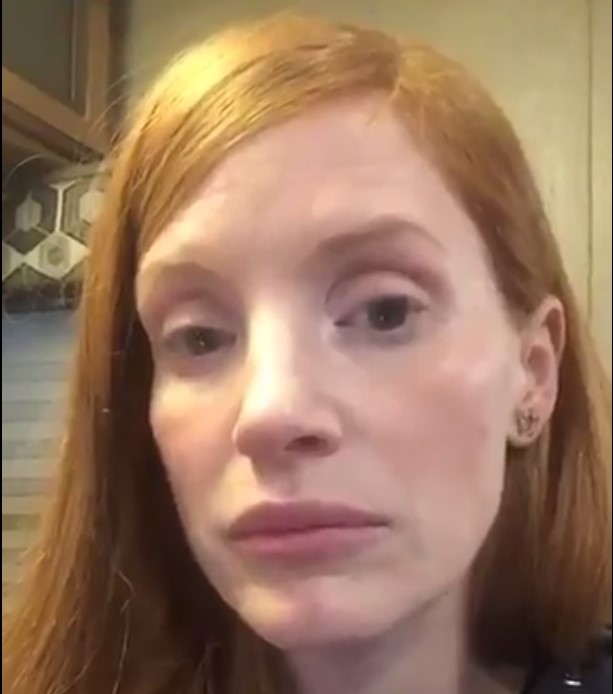🌻 Im here for you & Im listening 🌻 pic.twitter.com/2ZblYPK84R
— Jessica Chastain (@jes_chastain) September 1, 2017
A couple of days ago, we talked about a Twitter exchange between actress Jessica Chastain and a fan about violent vs. non-violent protest that included Chastain taking personal offense at the fan’s use of a Martin Luther King Jr. quote that talked about a specific type of white ally. Yesterday, she posted a video trying to clarify her intentions regarding anti-racism activism and her desire to be of better service.
In the above video, Chastain talks about “hearing people:”
I’m making a video because my heart is very heavy.
I’ve learned so much in the past few days about the trauma many people are experiencing in our country. I’ve had the opportunity to listen more than to speak and it’s really hard to express my feelings, my thoughts in 140 characters on twitter so here’s my first video.
I wanted you guys to know that I hear you. I wanted you to know that I’m committed to creating transformative social change that I am committed to dismantling systems of oppression.
I share in the sadness of what is happening in this country. I hear you and you may never have met me but I love you.
It’s good to see that she’s taking in what people are saying, even if she’s not being terribly specific about what exactly she’s taking in. The other important point that she brings up that I completely agree with is that it’s “hard to express [feelings…] in 140 characters on Twitter.”
Twitter, and social media in general, is not really a great platform or format to do any kind of nuanced discussing or learning about a topic as complex as racist oppression in America. What it is good for is calls to action: Donate here. Go to this rally. Support this organization. Read this book.
However, in order to be able to have specific, succinct calls to action, one first has to be clear about what exactly they want action for, or what they’re hoping to accomplish, by doing some learning on one’s own and, yes, listening, and perhaps asking for recommendations on where one should go for continuing education on a specific part of the problem.
As this post at Jezebel puts it, “there’s nothing wrong with becoming more empathic [sic], but letting people know you “share in [their] sadness” with a vague and apolitical video is … not the most helpful thing a wealthy, reasonably well-respected person with a large platform could be doing. (What “social change” are you committed to? Which “systems of oppression” have made your heart so heavy?)”
It’s clear that she favors non-violent protest. Honestly, so do I. I’ve never been a person who would or could take to the streets with Molotov cocktails. However, I’m very wary about talking about the appropriateness or inappropriateness of violent responses from oppressed groups, because I understand that the violence sometimes employed in protest is a response to not being heard.
When people question or complain about riots, for example, asking how black people could “destroy their own neighborhoods” or what have you, I think about the fact that black people too often are dismissed when they do try to do things peacefully, their peaceful protests drowned out by rhetoric that essentially forces them as a community to have to defend their right to be treated like human beings.
People, and the media, only seem to really pay attention when violence breaks out. And so, rioting has always been employed by people who aren’t heard any other way. White people have the privilege of non-violent protest, because white people are generally listened to. This is just one of many dynamics that people need to understand when talking about protest. Not everyone gets to protest the same way.
I want Chastain as an ally, and I genuinely believe she’s trying to be one. I also think she could stand to do a bit more listening and a bit more learning about anti-racism activism (it’s a huge, systemic problem with a lot of moving parts, and getting clear on exactly where one wants to focus their activism would be helpful: prison reform? police brutality? economic inequality? discrimination in the workplace and pay inequality? racism in education?) before she uses her platform to spread a message.
Education is an essential part of activism.
(image: screencap)
Want more stories like this? Become a subscriber and support the site!
—The Mary Sue has a strict comment policy that forbids, but is not limited to, personal insults toward anyone, hate speech, and trolling.—









Published: Sep 1, 2017 12:55 pm